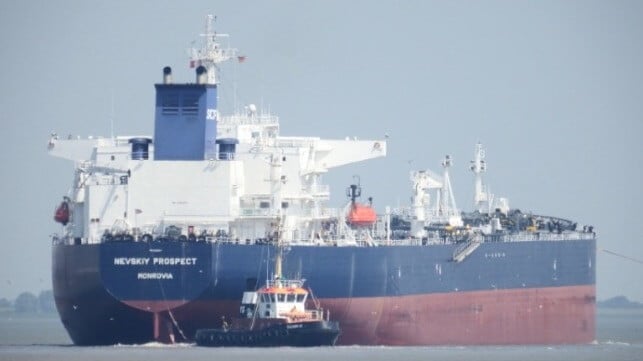G7 Nations Agree to Ramp Up Pressure on Russia's Energy Exports

The finance ministers of the G7 nations have agreed to increase restrictions and penalties on Russia's energy exports, in hopes of convincing the Kremlin to bring an end to its ongoing war in Ukraine and its repeated violations of NATO airspace. Russia has successfully circumvented previous energy sanctions, but the new G7 measures take aim at its overseas customers in India and China, not at its shadowy and hard-to-regulate transport network.
"We agreed that now is the time to maximize pressure on Russia’s oil exports, a major source of their revenue. We will target those who are continuing to increase their purchase of Russian oil since the invasion of Ukraine and those that are facilitating circumvention," the finance ministers said in a joint declaration.
They also agreed to continue phasing out any remaining G7 imports of Russian hydrocarbons - and may take measures to restrict trade in refined products made from Russian oil. Indian refineries are the largest exporters of clean products made from Russian oil, and have sold large volumes into European markets since the beginning of the war, raising concerns about a "back door" for Russian petroleum to get into Western economies.
In addition, the ministers agreed to take measures to help Ukraine keep financing its defense - including mobilizing the value of Russian state assets that were frozen in G7-based banks at the start of the conflict. In Europe, leaders are actively discussing a plan to use $160 billion worth of frozen Russian assets to underwrite a loan to Ukraine, which would then be used to buy European weapons; as yet there is no consensus on the plan, and some EU member states have concerns about its legality.
Russian fuel shortages
Ukraine has taken its own measures to target the Russian energy sector, including both export infrastructure and internal refining capacity. Recent hits on loading terminals at Ust-Luga, Primorsk and Tuapse have reduced (or aimed to reduce) Russian petroleum producers' ability to export unrefined oil and condensate. And a constant stream of drone attacks on the largest Russian refineries have cut refining throughput capacity by an estimated 20 percent. Even a ban on gasoline exports - freeing up about 15 percent of refining output - has not alleviated a domestic "fuel crisis," which is so widespread that even Russian media outlets have begun to acknowledge it.
"In some regions, there has been a shortage of petrol for several weeks now," wrote Nezavisimaya Gazeta on September 29, as translated by BBC's Steve Rosenburg. "The continuation of the fuel crisis after the [Kremlin's now-extended] ban on petrol exports comes as a surprise . . . It is no longer possible to deny the signs of petrol shortages in the regions."
The shortages may get worse soon. According to the Wall Street Journal, President Donald Trump has directed U.S. intelligence agencies to begin providing Kyiv with targeting information for long-range strikes deep within Russia, amplifying Ukraine's own abilities to carry out attacks on refineries, arms factories and military targets. Talks are under way on a deal that would allow Ukraine to buy America's long-range weapons - like the proven Tomahawk cruise missile - in exchange for access to Ukraine's highly advanced drone warfare technology.
Top image: Ian Greenwood / VesselFinder
